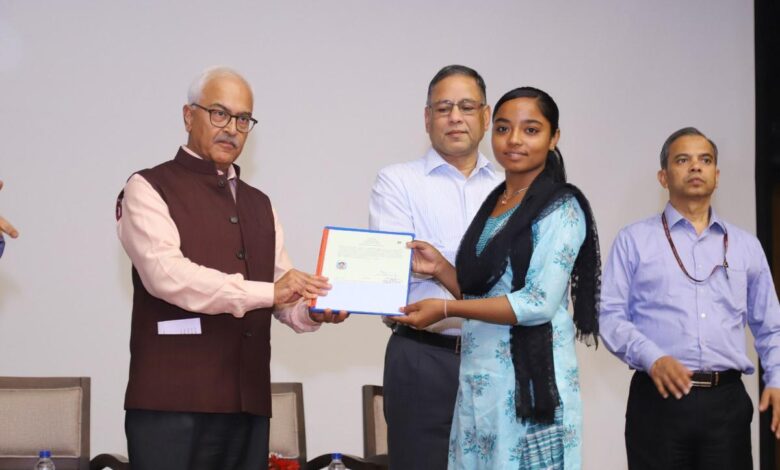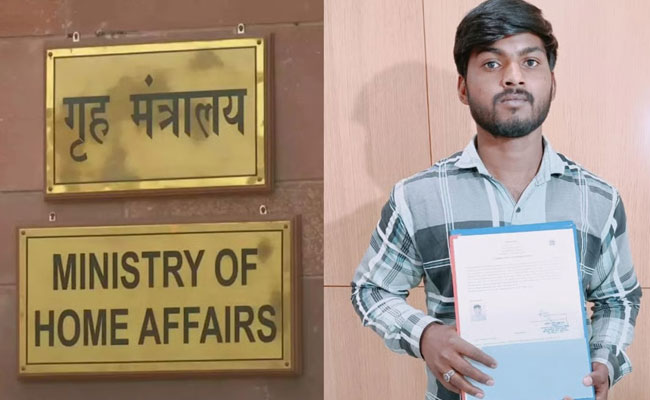First citizenship certificates under CAA issued to 14 people
The ministry has acknowledged applications from individuals belonging to Hindu, Sikh, Jain, Buddhist, Parsi, and Christian communities from Pakistan, Bangladesh, and Afghanistan

The Ministry of Home Affairs issued the initial set of First citizenship certificates under the Citizenship (Amendment) Act. This legislation, which was initially passed by Parliament in 2019, had its rules formally established by the government in March, 2024.
Union Home Secretary Presents First Citizenship Certificates Under New Rules
During a formal event in New Delhi, Union Home Secretary Ajay Kumar Bhalla personally delivered the citizenship documents to several applicants. The Home Ministry announced that this was the inaugural distribution of First citizenship certificates under the new Citizenship (Amendment) Rules, 2024.
Mr. Bhalla took the opportunity to congratulate the new citizens and discuss the important aspects of the new regulations.
According to the CAA rules announced on March 11th, shortly before the national elections, district-level committees (DLCs) are authorized to process citizenship applications. These applications undergo further examination by a state-level committee before citizenship is confirmed.

The ministry has acknowledged applications from individuals belonging to Hindu, Sikh, Jain, Buddhist, Parsi, and Christian communities from Pakistan, Bangladesh, and Afghanistan, who sought refuge in India due to religious persecution before December 31, 2014.
Chaired by appointed officials, the DLCs have conducted oaths of allegiance with the applicants after validating their documents.
“After the DLCs processed the applications according to the rules, they sent them to the State Level Empowered Committee led by the Director of Census Operations. The entire process was conducted through an online portal. The Empowered Committee in Delhi, after careful examination, decided to grant citizenship to 14 applicants,” stated the central government.
Opposition’s stance
However, some opposition leaders, including West Bengal’s Chief Minister Mamata Banerjee and Kerala’s Chief Minister Pinarayi Vijayan, have declared their refusal to implement the law in their states. In contrast, Prime Minister Narendra Modi and Union Minister Amit Shah have reaffirmed their commitment to enforcing the law across the nation.
The Home Secretary extended his congratulations to the applicants and emphasized the key points of the Citizenship (Amendment) Rules, 2024, during the citizenship conferment.
“Today, in Delhi alone, 300 individuals are receiving citizenship under the CAA. The CAA is now the law of the land,” stated Home Minister Amit Shah to ANI.
Among the recipients, Bhavna expressed her joy at receiving First citizenship certificates, which allows her to pursue further education. She recounted her arrival in India in 2014 and her relief at the passing of the CAA, contrasting the educational restrictions she faced in Pakistan with the opportunities now available to her in India.
Harish Kumar, another recipient, shared his elation at finally achieving his long-held dream of becoming an Indian citizen, expressing gratitude to the government for this new chapter in his life.
The Citizenship Amendment Rules, 2024, introduced by the Ministry of Home Affairs on March 11th, have facilitated the implementation of the CAA, which was enacted by Parliament in 2019.
Under these regulations, migrants from six minority communities in Pakistan, Afghanistan, and Bangladesh are eligible to apply for Indian citizenship under the CAA, retroactively. This opportunity arose following the law’s enactment.
The CAA 2019 amendment specifies that migrants who entered India by December 31, 2014, and experienced “religious persecution or fear of religious persecution” in their home countries, qualify for citizenship under the new law. These migrants are eligible for expedited Indian citizenship within six years.
Additionally, the amendment has reduced the residency requirement for naturalization of these migrants from eleven years to five, streamlining the path to citizenship.
You might also be interested in – CAA Rules Explained: Complete information about citizenship documents, protocols, and procedures



